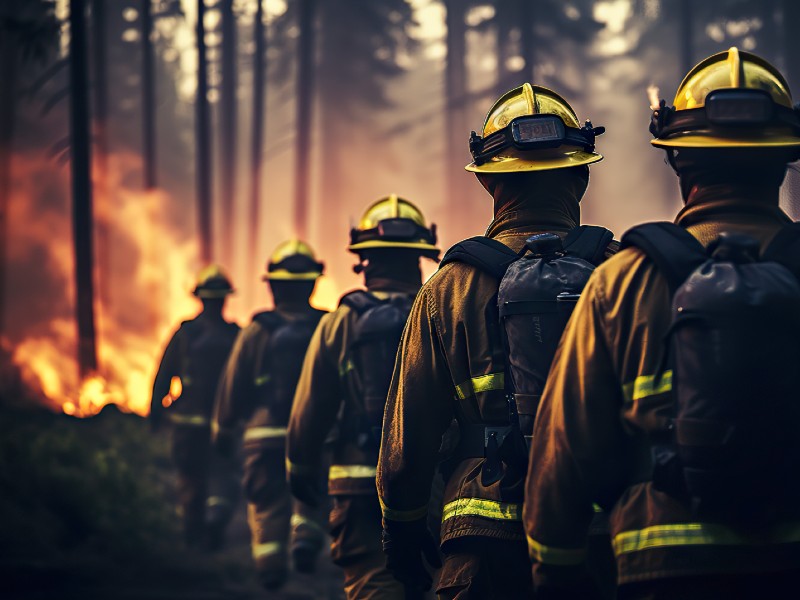
Improved benefits and pensions are needed for wildland firefighters amid the unprecedented amount of wildfires in Canada this year, says Bert Blundon, president of the National Union of Public and General Employees.
“Firefighters have an increased risk of cardiovascular disease, pulmonary disease, mental-health concerns and cancer. That last one is the main source of contention for wildland firefighters. Unlike urban firefighters and some emergency response workers, wildland firefighters don’t have access to presumptive coverage when it comes to cancer.”
Read: How employers can support employees impacted by wildfires
The impacts of firefighters’ work on their mental health isn’t discussed or supported enough, he says, noting seeing homes destroyed and people losing their lives can have a significant impact, so their mental-health coverage should be substantial enough to support them.
There’s also a double standard when it comes to wildland firefighters’ pensions, notes Blundon. Since forest fires don’t burn on a regular 9-to-5 schedule, a large portion of a wildland firefighter’s salary is overtime. These earnings aren’t included as a pensionable service, which means their pensions are lower than they should be.
“Other firefighters are allowed to accrue pensions at a much higher rate and this group has been excluded from that process. It’s a simple matter of the federal government and pension plans approving a higher accrual rate as they have for urban firefighters.”
In addition, because wildland firefighters aren’t included in the definition of public safety occupations under the federal Income Tax Act, they can’t retire at the same age as urban firefighters.
Read: B.C. court dismisses appeal, upholds pension plan’s decision to increase retirement age
The industry’s human resources department is also facing challenges with recruitment and retention. “They’re having difficulty filling some positions and it channels right back to lower pay for dangerous work,” says Blundon. “With firefighters leaving for a multitude of reasons, we end up with a younger cohort that doesn’t have the same experience. That’s not to say they’re not good firefighters. But we need a strategy to enhance training and provide greater benefits and stability to this workforce.”
A recent Reuters survey of provinces and territories (excluding the Yukon) found Canada employs roughly 5,500 wildland firefighters. In a press release, Mike Flannigan, a wildfire specialist and professor at Thompson River University in B.C., said that number is roughly 2,500 firefighters short of what’s needed.
“We’re all seeing the severe fires across the country and their devastating impact,” says Blundon. “The government is going to have to listen to unions that are trying to represent these individuals and come up with some solutions to recruitment and retention. We don’t have time to waste [in securing firefighters]. Excuse the pun, but we’re on fire here.”
Read: Wildfires crystallizing threats of catastrophic climate change for pension plan administrators
